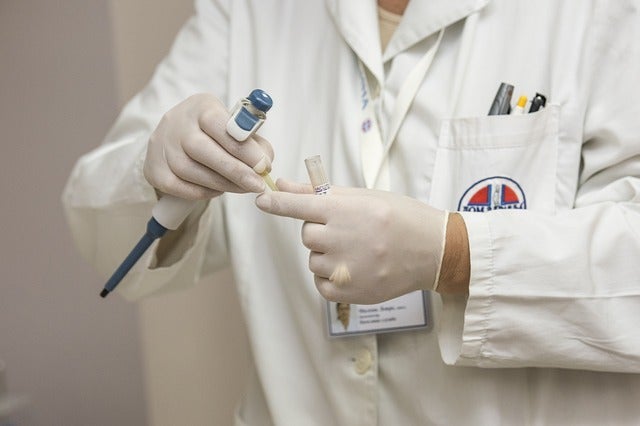
Vanderbilt-Ingram Cancer Center and Resolution Bioscience, Inc., today announced the first peer-reviewed scientific publication to track clinical response and resistance mechanisms to ensartinib using circulating tumor DNA (ctDNA). The peer-reviewed manuscript, “Monitoring therapeutic response and resistance: analysis of circulating tumor DNA in patients with ALK+ lung cancer,” was released online ahead of print publication in the Journal of Thoracic Oncology.
A team of scientists led by lung cancer researchers and clinicians at Vanderbilt-Ingram Cancer Center used the Resolution ctDx-Lung™ assay to identify actionable genomic alterations, as well as to monitor response and development of resistance to ensartinib, a second-generation ALK tyrosine kinase inhibitor (TKI). Pre-treatment plasma was collected from 76 patients with ALK+ non-small cell lung cancer (NSCLC) who were either ALK TKI naïve or had received prior ALK TKI. These plasma samples were analyzed for specific genetic alterations, and the results were correlated to tumor responses. In a subset of patients, serial changes in ALK alterations were also observed during ensartinib therapy.
“This is the first study to highlight treatment response and resistance mechanisms to ensartinib in patients who received this therapy,” said Leora Horn, MD, MS, Ingram Associate Professor of Cancer Research at Vanderbilt-Ingram Cancer Center and first author of the publication. “While further evaluation is required, these data suggest that longitudinal monitoring of genetic biomarkers that are associated with acquired resistance is feasible.”
“In the future, application of ctDNA technology could allow a physician to prescribe a more effective and personalized treatment to improve clinical outcomes before the cancer progresses,” said Christine M. Lovly, MD, PhD, Associate Professor of Medicine at Vanderbilt-Ingram Cancer Center and senior author of the publication.
As part of the study, the team of scientists also analyzed the concordance between the Resolution ctDx-Lung assay and paired tumor tissue, as well as the association of total detected ctDNA with progression-free survival. Overall, there was a high degree (91%) of fusion concordance between plasma and tissue next-generation sequencing analyses. The same Resolution liquid biopsy assay was also recently used by researchers at Dana-Farber Cancer Institute to detect nearly twice as many actionable gene fusion mutations with significantly higher allele frequencies than another commercially available ctDNA test.
“The Resolution ctDx-Lung assay is designed to provide a fast, accurate, and non-invasive solution for mutationally comprehensive tumor genotyping,” said Mark Li, CEO of Resolution Bioscience. “This new publication adds to the growing body of evidence demonstrating the clinical utility of our liquid biopsy approach and its ability to inform NSCLC disease evolution and response to therapy.”
Source: Company Press Release






